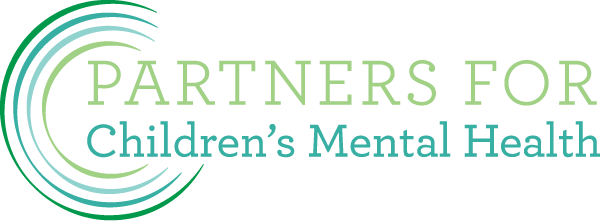Written by Shannon Van Deman, executive director of PCMH and vice president of the Pediatric Mental Health Institute at Children’s Hospital Colorado.
After a year of hard and focused work, it was inspiring to stand behind Governor Jared Polis as he announced the release of the Colorado Behavioral Health Task Force’s plan for system reform.
The blueprint, Behavioral Health in Colorado: Putting People First, puts forth transformative ideas for a more streamlined, efficient and effective system. This includes establishing a Behavioral Health Administration and regional care coordination structure to improve funding and delivery of mental health and substance use services. The blueprint also outlines key findings from public testimony and recommendations from the task force subcommittees.
As co-chair of the children’s behavioral health subcommittee, I’m particularly proud of the nearly 50 recommendations focused on meeting the unique needs of children and youth throughout the state.
Making the behavioral health system work better for youth
We know that the system can work better for this population. For too long, Colorado kids have been struggling to access the behavioral health care they need to thrive. The current system is confusing for families to navigate and many end up waiting weeks or months to receive care. Only 21% of the 226,000 children and teens with a diagnosable mental health condition receive professional care. Plus, geographic location or ability to pay can have a significant impact on the quality of mental health services families receive.
The new streamlined system proposed in the blueprint will change that. The aim is to ensure all families experiencing behavioral health issues can access timely, high-quality services in their communities in a cost-efficient manner. The plan also includes “care coordinators” in communities to help families navigate the complex system and get the care they need.
Developing the behavioral health recommendations
To get to these recommendations, we needed to map the landscape of youth behavioral health services in Colorado, identify gaps and prioritize the most pressing issues. The subcommittee used the Roadmap to Colorado’s Behavioral Health System for Children, Youth and Families — developed by PCMH in collaboration with more than 100 stakeholders in 2018 — to kickstart these efforts, along with other foundational documents from previous work completed in Colorado.
The financial mapping report developed by PCMH and the Colorado Health Institute was another critical resource to help us understand the system. The financial map included in the report outlined where state, federal, and other funds are supporting Colorado’s behavioral health system for children and youth. As a result, we were able to identify opportunities to maximize investments. The new streamlined model will enable the state to fully capitalize on federal funding, increasing spending without using Colorado taxpayer money.
Implementing a better behavioral health system
The next step is an implementation plan. To do this right, it will require continued commitment and collaboration among diverse and committed stakeholders across Colorado to carry this work forward.
PCMH is committed to advocating for and advancing the recommendations set forth and will be working with our Advisory Council and partners to determine opportunities to lead and convene.
We still have a long road ahead with much to get done. But I’m feeling confident that, armed with this blueprint, we can improve the state of youth mental health in Colorado.
For more information on the blueprint and implementation:
- Executive Committee members of the task force hosted a town hall that walked through key recommendations, including establishing a state behavioral health administration, and answered questions from stakeholders. Watch the webinar recording.
- Sign up for regular updates on the Colorado Behavioral Health Task Force website.


